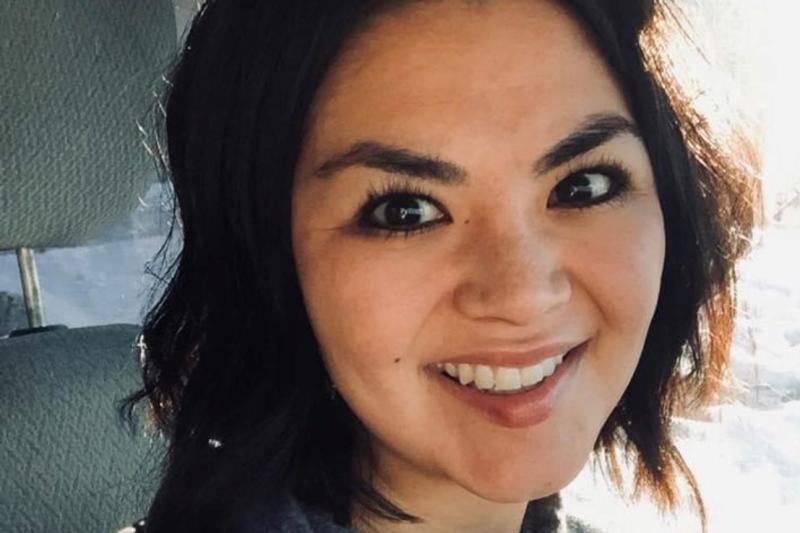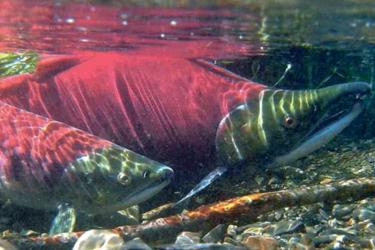“We know our efforts to identify research needs and to more effectively communicate with and design collaborative research projects with Alaska Indigenous communities, Tribal governments, and Alaska Native organizations will benefit greatly from Mabel’s knowledge and experience.”
- Robert Foy, Director, Alaska Fisheries Science Center
NOAA Fisheries is pleased to announce that we have hired a new Tribal Research Coordinator. Mabel Baldwin-Schaeffer joins the Alaska Fisheries Science Center’s Communications Program and will be based in Anchorage, AK.
Baldwin-Schaeffer will provide technical support to help enhance existing communications and outreach efforts. She will also foster relationships with subsistence communities and fishing sectors to identify opportunities for scientific collaboration and co-production of research.
“This is a first for us and we couldn’t be more excited to have Mabel working with us. Mabel was very successful in building partnerships with diverse stakeholder groups to co-produce data when she was at the Fisheries, Aquatic Science and Technology Laboratory at Pacific University,” said Robert Foy, Director of the Alaska Fisheries Science Center. “We know our efforts to identify research needs and to more effectively communicate with and design collaborative research projects with Alaska Indigenous communities, Tribal governments, and Alaska Native organizations will benefit greatly from Mabel’s knowledge and experience.”
The Synergy of Western Science with Traditional Knowledge
"The Arctic is rapidly changing. Now, more than ever, we need to work together. Blending Western science with the wisdom and insights of subsistence communities will enable us to develop a shared understanding of how Alaska marine ecosystems are evolving. This will help us to successfully respond and adapt to these changes."
- Robert Foy, Director, Alaska Fisheries Science Center
Baldwin-Schaeffer has both a science background—a Bachelor’s degree in Sustainability Studies and a Master’s degree in Environmental Science from Alaska Pacific University—and ties to local communities. Given her direct experience with Alaska Native community cultures, traditions, and ways of communicating, Baldwin-Schaeffer will help to strengthen collaborative relationships with Indigenous communities in Alaska. She will also build staff capacity at Alaska Fisheries Science Center to engage effectively in these efforts. This will help facilitate greater information sharing and opportunities to develop mutually beneficial research priorities.
“I am committed to making positive steps in improving collaboration within and between Alaska’s tribal communities and the institutions and agencies committed to supporting sustainable subsistence-based livelihoods and healthy marine ecosystems,” said Baldwin-Schaeffer.
Prior Work
In her previous work, she led a collaborative study examining offshore gold mining and effects on important structural habitat components for juvenile red king crab in Norton Sound, Alaska. Baldwin-Schaeffer also managed a collaborative initiative between the Bering Sea Elders and a Bering Sea commercial fishing fleet.
The goal of the initiative was to better understand the effects of changes in Kuskokwim Bay’s water temperatures and strengthen communication between Alaskan Native communities and the commercial fishing industry.
“The Arctic is rapidly changing. Now, more than ever, we need to work together. Blending Western science with the wisdom and insights of subsistence communities will enable us to develop a shared understanding of how Alaska marine ecosystems are evolving. This will help us to successfully respond and adapt to these changes,” said Foy.

